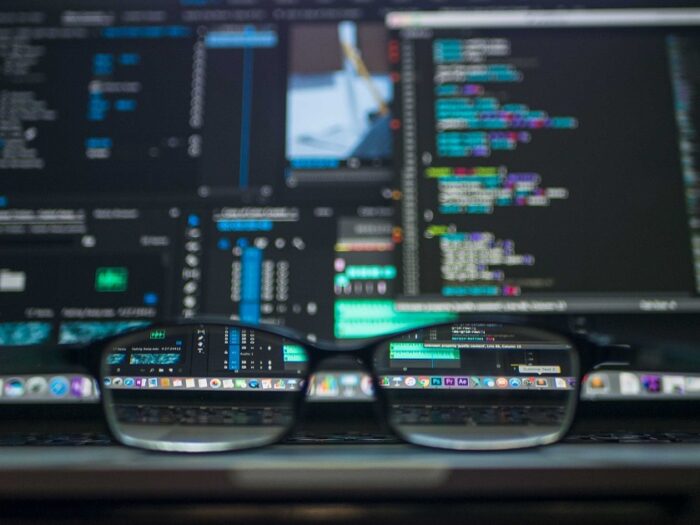
A friend recently asked a question on her Facebook Page – GrowWithSupreet
Re-posting my re-phrased re-sponse on that thread he-re. (Have you seen more re’s in one sentence? 😉 )
Multi-tasking vs Multi-focusing
In my opinion, multi-tasking is a must but it gets a bad name for no good reason. Actually, there is a good reason; we all confuse multi-tasking with multi-focusing.
Human brain isn’t good at multi-focusing but it is pretty decent at multi-tasking. I think everyone is good at multi-tasking. Don’t agree? Think of the last time you drove your car with music on, or had food while chatting with your family at the dinner table, ate popcorn while watching a movie, sing while taking a shower? In all of these examples, you are focusing on one thing e.g. while watching the movie your focus is on movie and not on the popcorn necessarily.
We multi-task all the time, the problem starts when we are trying to multi-focus e.g. Open your social media feed when you should be listening to the other attendees in that important meeting. Now your focus is divided and that’s when you end up doing a crappy job at both the things.
Good vs Bad Multi-tasking
To get more nuanced, Multi-focusing isn’t technically possible. No one can focus on more than one thing at a time. So may be the Multi-tasking vs Mutli-focusing isn’t a good differentiation. May be we should talk more in terms of Good Multi-tasking and Bad Multi-tasking. When you are multi-tasking, what you are actually doing is switching focus from one topic to another. This is called context-switching.
Context-Switching is a popular term in Computer Science and there are many different algorithms that can be used on how to optimize your computer’s performance. But here we are going to talk about how you can use this idea of context-switching to determine when is it ok to multi-task.
Cost of Context Switching
The first thing we need to be aware of and acknowledge is that context-switching is taxing for your brain. Every time you context switch you are paying a cost. It is depleting your mental energy and adding to your fatigue. Following image provides a good understanding of the “Cost of Context Switching”
By now, I think you may already be starting to understand that when somebody says “Multi-tasking is bad” what they are actually mean is that “Context-switching is bad”. I would say in the modern world it is more of a necessary evil. You need to understand how to optimize it, much like the computer science algorithms meant to optimize performance.
How to determine good vs bad multi-tasking
When it comes to multi-tasking there are tasks that make a good combination and tasks that make bad combination. Use the context-switching cost as a metric to determine which tasks can be combined.
In the multi-tasking example I took earlier of watching a movie while eating pop-corns, the context-switching has a long cycle. Your concentration is primarily on the movie and you may briefly switch context to the taste of pop-corns if something unusual happens e.g. a bad pop-corn, but after that you can quickly return to the original focus item – the movie.
But lets say if you were eating pop-corns after one year, and your goal was to eat those pop-corns mindfully, while enjoying the smell and feeling the texture and the taste of salt and butter and so on, then you need to be paying much more attention to the act of eating. If you were doing that while watching the movie, you would neither be able to focus on the movie nor the pop-corns as you would switching contexts too frequently.
In the other example of driving a car while listening to a podcast, same idea of context switching can be applied. If the traffic is smooth, and the podcast is on a topic that you are familiar with the context switching costs are low. But if you are in a bumper to bumper traffic or the topic of the podcast is novel or arcane and you need to take notes to fully understand it, then it might be better to pause the podcast and focus on getting home safely.
The Social Media Problem
I think part of the reason Multi-tasking is getting such a bad name off-late is because of Social Media. It’s quite likely that if you that the other task in the multi-task is Facebook, Twitter, Instagram, Whatsapp, Youtube, TikTok, Texting or the likes. And that is a problem. It is also quite likely that you are not even aware that you are doing this other task and just doing it out of habit. And that is an even bigger problem.
Social media is really deceptive at hiding the true context-switching cost. You may think that just browsing through the news feed is quite harmless and you are just scrolling without really paying attention.. But that is until you see an interesting post or read an interesting comment and then you are sucked in. Your focus is on the comment and not on the meeting that you were supposed to be listening to, and the context-switching cost becomes too high.
The costs and consequences are even more severe and immediate when social media is combined with driving..
Summary
To summarize, I feel bad for “Multi-tasking” getting a bad name. I recall a time when “Multi-tasking” was something looked up on. To it’s credit, multi-tasking has helped us and continues to help us get more shit done. What we need to do is be more conscious of the context-switching costs and try to make educated decisions on when it is ok to multi-task and when it is not.